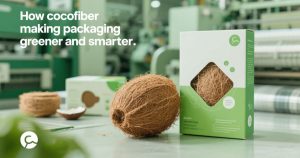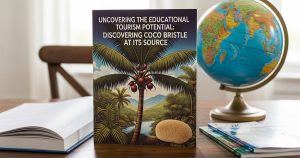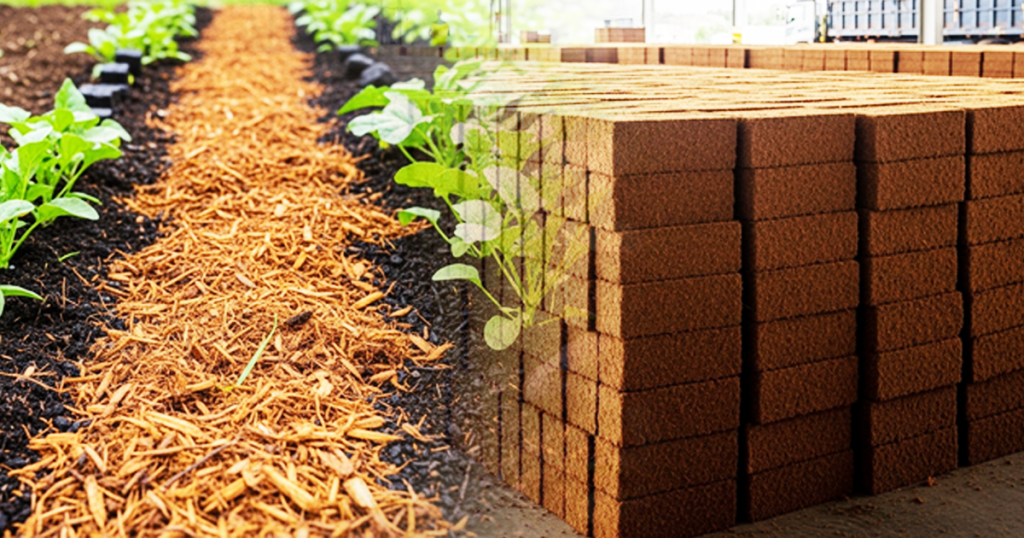By a Researcher in Sustainable Cocopeat Innovation
Once discarded as agricultural waste, the coconut husk is now enjoying a surprising rise to eco-stardom. As a researcher specializing in cocopeat also known as coir pith I’ve had a front-row seat to the remarkable transformation of this byproduct from the coconut industry into a powerful ally in sustainable agriculture, horticulture, and even environmental remediation.
From Waste to Worth
For decades, coconut husks were either burned, contributing to air pollution, or left to rot in landfills. This fibrous outer layer of the coconut was seen as an inconvenience in many coconut-producing countries. But scientific advancements and the rise of eco-conscious markets have turned this once-undervalued material into one of the most sought-after organic substrates in the world.
Cocopeat is the spongy, brown, soil-like material derived from the husk after fiber extraction. It is renewable, biodegradable, and abundantly available in tropical countries such as Indonesia, India, Sri Lanka, and the Philippines. Its properties lightweight, excellent water retention, and antifungal characteristics make it a highly efficient and sustainable alternative to peat moss, which is increasingly criticized for its environmental toll.
The Green Gold Rush
The surge in global demand for sustainable farming practices has significantly boosted cocopeat’s commercial value. With hydroponics, vertical farming, and urban gardening on the rise, cocopeat is no longer an agricultural footnote it’s a cornerstone.
One of the driving forces behind this boom is the substrate’s capacity to hold up to eight times its weight in water. This means less irrigation is needed, especially crucial in drought-prone areas. Additionally, cocopeat promotes better root aeration and supports a more balanced pH environment for plant growth, reducing the need for chemical fertilizers.
As a researcher, I’ve conducted extensive studies on cocopeat’s application in soilless cultivation systems. The results consistently show improved plant health and yield when compared to traditional mediums. These findings are echoed globally, and more startups are entering the cocopeat supply chain from processing facilities to online gardening platforms.
Challenges in the Supply Chain
Despite its advantages, the rapid growth of the cocopeat market isn’t without challenges. Quality control remains a significant issue. Raw cocopeat contains high levels of salt, which can harm plant roots if not properly washed and buffered. Standardizing processing methods across different producers is essential to maintain consistency.
Additionally, transportation and storage costs can be high due to cocopeat’s bulk density in uncompressed form. Fortunately, technological innovations like block compressing and biodegradable packaging are helping streamline logistics and reduce carbon footprints.
As researchers, we must advocate for better international standards and encourage traceability in the cocopeat value chain to ensure both ecological and economic sustainability.
A Circular Economy in Action
Cocopeat represents a shining example of circular economy principles. By transforming coconut husks into a usable and marketable product, we’re not only reducing agricultural waste but also creating new revenue streams for coconut farmers.
In many rural communities, especially in Southeast Asia, the coir industry has revitalized local economies. Women-led cooperatives are particularly thriving, empowered by microfinancing schemes that support small-scale cocopeat processing units. It’s not just about agriculture it’s about social impact.
The Future is Fibrous
As global agriculture faces increasing pressure to become more resilient and eco-friendly, natural substrates like cocopeat will play a central role. Future research is now focused on enhancing cocopeat’s bioactivity through microbial enrichment and integrating it with precision agriculture technologies.
The humble coconut husk, long overlooked, now stands at the forefront of an environmental revolution. As both a researcher and an advocate for sustainable practices, I believe we’ve only begun to scratch the surface of its potential.







